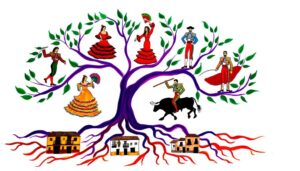Meaning of the Name Susan
The name Susan derives from the Hebrew name Shoshana, meaning 'lily' or 'rose.' This name has ancient roots found in biblical texts, symbolizing purity and renewal. Over time, it evolved through Greek and Latin influences to become Susan in English.
In various cultures and contexts, lilies represent chastity and rebirth, adding layers of symbolic meaning to the name. Significantly, figures like Susan B.
Anthony and Susan Sontag underscore its historical and cultural significance. From its etymological origins to its presence in literature and media, uncover the intricate journey of the name Susan.

Key Takeaways
- Susan originates from the Hebrew name Shoshana, meaning 'lily' or 'rose'.
- The name signifies purity, grace, and renewal, derived from its etymological roots.
- Susan has been popular in various cultures, reflecting historical and cultural shifts.
- The name retains symbolic significance, representing chastity and virtue in religious contexts.
- Notable figures like Susan B. Anthony and Susan Sontag highlight its enduring cultural impact.
Hebrew Origins of Susan
The name Susan originates from the Hebrew name Shoshana, which translates to 'lily' or 'rose' in English, reflecting the ancient linguistic and cultural significance of floral symbolism in Hebrew tradition.
The root word 'שׁוֹשַׁנָּה' (Shoshana) is found in biblical texts, emphasizing purity, beauty, and divine creation.
The Indo-European linguistic evolution saw Shoshana passing through Greek and Latin as 'Sousanna' and 'Susanna,' before finally anglicizing to Susan. This transformation illustrates not just linguistic shifts but also cultural exchanges across civilizations.
In Hebrew culture, the lily was often associated with fertility and renewal, underscoring the name's depth. Therefore, Susan carries forward a legacy imbued with profound historical and symbolic meanings from its Hebrew origins.
Susan in Literature and Media
Susan has been a prominent name in literature and media, often symbolizing purity, strength, and complexity in its various character portrayals. Stemming from the Hebrew word 'Shoshana,' meaning lily, Susan carries connotations of beauty and innocence.
Classic works such as 'The Chronicles of Narnia' by C.S. Lewis feature characters like Susan Pevensie, who embodies wisdom and resilience. In literature, Susan's roles vary, reflecting societal views and evolving gender norms.
In media, Susan often appears in narratives that explore multifaceted female experiences, from Susan Mayer in 'Desperate Housewives' to Susan Storm in 'Fantastic Four.' These diverse representations highlight the name's enduring appeal and its capacity to adapt to different cultural and narrative contexts.
Symbolism of the Name
Throughout history, the name Susan has been imbued with rich symbolism, drawing from its etymological roots and cultural interpretations. Originating from the Hebrew name Shoshana, meaning 'lily' or 'rose,' Susan evokes imagery of purity, beauty, and elegance.
The lily, a symbol of chastity and virtue, has deep religious connotations, particularly within Christian and Jewish traditions. Additionally, in ancient Egyptian culture, the lily was associated with rebirth and eternal life.
Linguistically, the name Susan traversed through Greek (Sousanna) and Latin (Susanna) forms before settling into its present English version. Each cultural adaptation retained the inherent symbolic resonance of the flower, embedding the name with layers of historical and linguistic significance that continue to evoke grace and serenity.
Famous People Named Susan
Recognizing the influence of notable individuals named Susan offers insight into the enduring legacy and cultural impact of this historically rich name. From Susan B. Anthony, a pivotal figure in the women's suffrage movement, to Susan Sontag, an intellectual whose essays have shaped modern thought, the name Susan has been borne by trailblazers across various fields.
Linguistically, the name Susan derives from the Hebrew 'Shoshana,' meaning lily, symbolizing purity and grace. Its linguistic journey from ancient Hebrew to modern usage underscores its timeless appeal. Susan Sarandon, an acclaimed actress, further exemplifies the name's presence in contemporary culture.
These figures collectively highlight the name Susan's historical depth and its persistent resonance in both social and cultural spheres.
Popularity Over Time
Tracing its linguistic roots and cultural significance, the name Susan has experienced fluctuations in popularity over centuries, reflecting broader social and historical trends. Originating from the Hebrew name Shoshana, meaning 'lily' or 'rose,' Susan entered the English lexicon via Greek and Latin influences.
Its prominence surged in the mid-20th century, particularly in English-speaking countries, aligning with a post-war affinity for classic names. By the late 20th century, however, its usage waned as naming conventions shifted toward more contemporary choices.
Despite these oscillations, Susan remains a name imbued with historical resonance and enduring appeal, echoing its ancient origins and the timeless beauty it signifies. The cyclical nature of its popularity underscores the dynamic interplay between tradition and modernity in naming practices.
Conclusion
The name Susan, derived from the Hebrew name Shoshana, meaning 'lily' or 'rose,' has permeated various cultural, literary, and historical contexts. Its symbolic association with purity and beauty has been reflected in numerous works of literature and media.
For instance, Susan Pevensie, a character in C.S. Lewis's 'The Chronicles of Narnia,' embodies these qualities. Over time, the name's popularity has fluctuated but remains a classic choice.
The enduring legacy of Susan underscores its timeless appeal and cultural significance.






